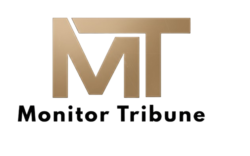In a world overflowing with information, finding reliable knowledge can feel like searching for a needle in a haystack. Enter Seekde, the innovative platform that bridges the gap between learning and trust. Whether you’re seeking academic insights or practical skills, Seekde transforms how we acquire knowledge by prioritizing quality and user experience. Imagine having access to resources curated just for you—this is where your journey begins with Seekde. Let’s dive deeper into what makes this platform stand out in today’s digital age of education!
What is Seekde?
Seekde is a transformative learning platform designed to connect users with high-quality educational content. It offers an extensive database of resources, ranging from articles and videos to interactive courses.
At its core, Seekde emphasizes personalized learning experiences. Users can tailor their journeys based on interests and knowledge levels. The platform’s intuitive interface makes navigation easy for everyone.
What sets Seekde apart is its commitment to trustworthiness. Each resource undergoes thorough vetting processes, ensuring that learners access only the most reliable information available.
Whether you’re a student looking for study materials or a professional aiming to enhance skills, Seekde meets diverse needs comprehensively. This focus on quality and user-centric design positions it as a go-to destination in the ever-evolving landscape of online education.
The Benefits of Using Seekde for Learning
Seekde transforms the learning experience by making knowledge accessible to everyone. With its user-friendly interface, learners can navigate through a vast array of subjects effortlessly.
Personalized learning paths cater to individual needs and preferences. This adaptability allows users to progress at their own pace, enhancing comprehension and retention.
Additionally, Seekde fosters a collaborative environment. Learners can connect with peers and experts alike, creating a community that encourages discussion and shared insights.
The platform’s rich multimedia resources engage various learning styles. From videos to interactive quizzes, Seekde keeps users motivated throughout their educational journey.
Moreover, real-time feedback helps identify strengths and areas for improvement. This continuous evaluation empowers learners to take charge of their education confidently.
How Seekde Ensures Trust and Quality Learning
Seekde stands out by prioritizing trust and quality in its learning approach. The platform employs rigorous vetting processes for educators and content creators. Each instructor goes through a thorough background check, ensuring that users learn from qualified professionals.
Moreover, Seekde emphasizes transparency. User reviews and ratings play a crucial role in maintaining high standards. Learners can easily assess the effectiveness of courses based on genuine feedback from peers.
Quality is further enhanced through continuous improvement initiatives. Seekde regularly updates its course materials to reflect current trends and knowledge advancements. This ensures that learners receive relevant information tailored to today’s fast-paced environment.
Additionally, the platform fosters community engagement. Users have access to forums where they can discuss topics with their peers and instructors, creating an interactive learning experience grounded in mutual support and trustworthiness.
The Various Features and Tools Offered by Seekde
Seekde offers a wide array of features designed to enhance the learning experience. Users can explore an extensive library of resources tailored to various subjects and skill levels. From interactive quizzes to comprehensive articles, there’s something for everyone.
The platform’s user-friendly interface makes navigation seamless. Learners can easily access courses and materials with just a few clicks. The real-time progress tracking feature is particularly helpful, allowing users to monitor their advancements at any moment.
Additionally, Seekde incorporates community forums where learners can connect with peers and instructors alike. This fosters collaboration and encourages knowledge sharing among users.
Another standout tool is the personalized learning path feature. It adapts content based on individual preferences and goals, ensuring that each learner receives a customized experience that meets their unique needs while keeping engagement high.
Success Stories from Users of Seekde
Users of Seekde have shared inspiring stories that highlight the platform’s impact on their learning journeys. One user, a college student struggling with calculus, found personalized resources that transformed her understanding. With tailored quizzes and interactive tutorials, she improved her grades significantly.
Another success story comes from a professional looking to upskill in digital marketing. Through Seekde’s curated courses, he gained hands-on experience with real-world projects. This knowledge helped him land a promotion at work.
A parent praised Seekde for aiding their child’s learning during remote schooling. The various tools available made education engaging and accessible for young learners.
These testimonials show how Seekde fosters growth through innovative strategies tailored to individual needs. Each story emphasizes the platform as not just an educational tool but also a supportive community aimed at empowering users every step of the way.
The Future of Seekde and its Impact on Education
Seekde is set to revolutionize the educational landscape. With its innovative approach, it caters to diverse learning styles and needs.
As technology evolves, Seekde adapts. The platform continually integrates AI-driven tools that personalize the learning experience. This adaptability will ensure users receive content aligned with their individual goals.
Moreover, Seekde champions collaboration among learners from various backgrounds. By fostering a global community, students can share insights and experiences in real-time.
The emphasis on trust within Seekde also plays a crucial role. As it builds partnerships with credible institutions and experts, users can be confident in the quality of information they access.
Looking ahead, as more individuals embrace online education, platforms like Seekde will become essential resources for lifelong learning and skill development across all age groups.
Conclusion:
Seekde stands out as a remarkable platform where knowledge converges with trust and smart learning. By prioritizing user experience and the delivery of high-quality content, it transforms the learning journey for individuals across various backgrounds. The benefits of using Seekde are numerous, from its innovative tools to its commitment to fostering community engagement.
The emphasis on trust and quality in education is crucial for any learner. Seekde addresses this need by ensuring that all resources meet strict standards before being made available to users. This level of quality control allows learners to focus solely on their studies without worrying about misinformation or subpar resources.
With an array of features designed to enhance the educational experience, Seekde enables personalized learning paths, interactive quizzes, and collaborations with peers. These tools not only make learning more engaging but also allow users to track their progress effectively.
Real-life success stories from users highlight how Seekde has positively impacted lives—helping students excel in their studies or even aiding professionals in mastering new skills that advance their careers. Such testimonials evidence the platform’s effectiveness and reliability.
Looking ahead, Seekde aims to continue redefining education through technology while expanding its offerings. Its potential impact on future generations cannot be overstated; it’s poised to empower learners everywhere with accessible knowledge grounded in trust.
Embracing platforms like Seekde can open doors for anyone seeking growth through learning—a testament that knowledge truly meets trust here.

